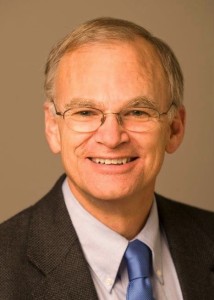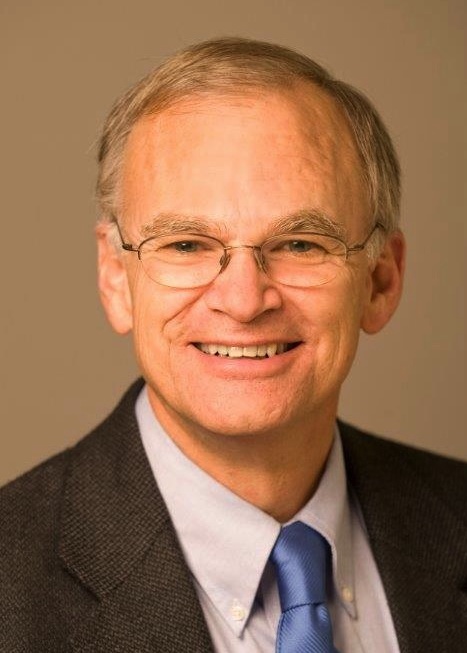 by Paul Rusk, executive director, Alzheimer’s & Dementia Alliance of Wisconsin
by Paul Rusk, executive director, Alzheimer’s & Dementia Alliance of Wisconsin
Recently, a 67-year-old gentleman wrote this evaluation of our Crossing Bridges Educational Discussion Group: “This program is invaluable. You are a life raft in a sea of fear, grief, confusion, anger and guilt. I don’t know what I would have done without you.” Comments like this one reinforce our focus and direction at the Alzheimer’s & Dementia Alliance of Wisconsin (ADAW) — helping people at any stage of their journey with dementia, with a particular focus on early stage programming.
Over the last several years, there has been significant growth in our programming for persons with young onset dementia that is consistent with the new National Plan to Address Alzheimer’s Disease. Further, providing a counter point to the predominantly negative messaging surrounding Alzheimer’s disease has been a huge lift to the people we serve. ADAW is fortunate to have 10 professional program staff with an average 11 years of direct dementia experience. We understand that dementia is very complicated and we strive to provide the best information right from the start. Last year we received 1,800 Helpline calls, conducted 800 one-on-one care consultations providing personalized guidance, and presented nearly 200 in-depth programs offering real solutions based on individual needs. Often, long-term relationships build between the staff and the people we serve, resulting in better communication and understanding of those individual needs.
Young Onset Programming
We have created five specific programs and services especially for those with young onset dementia. We started the first Memory Café in Wisconsin, currently available in four communities in south central Wisconsin, with more being planned. Based on European models, the Memory Café focuses on conversation, laughter and learning in a safe environment where interaction is key and you can just be yourself. The response has been astounding with participants helping to plan the activities. In fact, a reporter covering one Café became part of the programming, answering questions on his experiences in the media.
Our other programs emphasize enhancing strengths rather than deficits. Crossing Bridges is a 4-week educational group for people with mild memory loss or who are in the early stages of any dementia; care partners are encouraged to attend. Meeting of Minds is a cognitive enhancement program for people with mild memory loss that includes creative and mentally stimulating exercise such as group storytelling, modified Tai Chi or other relaxation activities. Support groups for young onset and young onset care partners allow time with others who are similarly impacted to build new friendships in comfortable and reassuring environments where community integration, rather than institution care, is emphasized. National research indicates that support early in the disease process can make a world of difference in well-being and quality of life while helping everyone cope at a very difficult time.
The philosophy behind these programs is simple: Alzheimer’s disease and related dementias are devastating illnesses, but constantly emphasizing death and dying is no way to help people with dementia and their families cope with the disease. Rather than focusing on cognitive decline, we focus on strengths that remain throughout the disease process and the concrete things you can do to adapt to changes. Enhancing communication skills with family and friends, developing new coping skills and ways to manage stress, growing your knowledge of community resources and support, and taking the opportunity to share with others in similar situations consistently have proven to be invaluable. We help people with early memory loss to stay active, avoid isolation and better understand their illness. People with dementia should be out and about sharing fun and laughter with their care partners in welcoming settings free from stigma and fear. New relationships form through strength in numbers and shared experiences. Accurate information on resources, assistance and support should be close at hand. Listening, learning, and conversation take on new meaning as life continues to be upbeat and fun.
New Partnerships
In recent years, ADAW has increased our focus on developing new partnerships including joining the LEAD Coalition and the Alzheimer’s Foundation of America. On a statewide level, we chair the Wisconsin Healthcare Access Network. We take every opportunity to build advocacy partnerships by supporting the issues of other organizations when they impact people with dementia. Currently, we are working on a Silver Alert bill to create a system aimed at paralleling the Amber Alert program to address wandering in a meaningful way. As the only Alzheimer’s organization in Wisconsin with a dedicated public policy position, we continue to work actively on local, state and federal issues. Our membership in the LEAD Coalition has been particularly valuable in keeping abreast of dementia issues in Washington. We were pleased to coordinate letters, from Governor Walker and seven members of Wisconsin’s congressional delegation representing both political parties, in support of the state’s re-application for the Wisconsin Alzheimer’s Disease Research Center. At a time when political rancor alienates so many Americans, we are proud that confronting Alzheimer’s disease continues to be a non-partisan issue and we wish for substantial increases in federal research support so this disease can be ended once and for all.
Paul Rusk is the Executive Director of the Alzheimer’s & Dementia Alliance of Wisconsin. ADAW’s mission is to support individuals, families, and professionals impacted by Alzheimer’s disease and other dementias through information, education, consultation and advocacy; and to promote the advancement of scientific research to better diagnose, treat and ultimately eliminate Alzheimer’s disease. Since 1985, ADAW’s expert staff has been offering compassionate guidance to those affected through every stage of the disease. Its services help people create the best quality of life for those facing a dementia diagnosis. Visit www.alzwisc.org for more information.
Disclaimer:
The views in guest essays are those of the authors and do not necessarily reflect the views of the LEAD Coalition.

